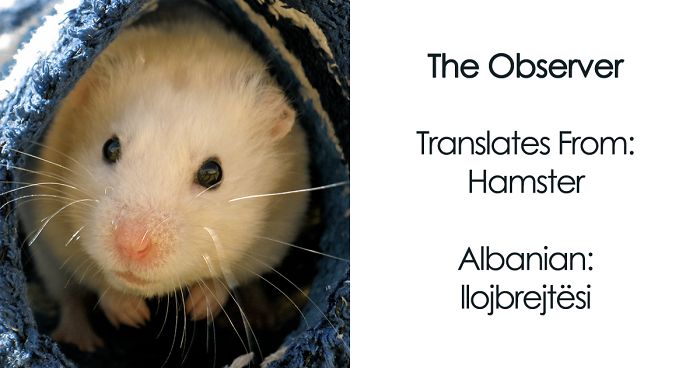
Literally-Translated Animal World Map Shows How Ridiculous Their Names Can Be
These maps of Asia, Europe, and Africa will change how you look at every creature and critter using their translated synonyms.
Through a set of beautifully illustrated maps, you can reimagine what the animal kingdom would look like if these animals lived up to their literally translated names.
More info: tails.com
Africa’s Literally Translated Animals
Using translations from Swahili, Zulu and Afrikaans, we have found the literal translations for insects, mammals, sea creatures and more!
For example, the translation from the Nigerian language Hausa refers to Donkeys as ambassadors. I don’t know who it flatters more, the donkey or the ambassador, but we like the idea of ‘ambassador’ Donkeys roaming the streets:
Image credits: Tails.com
Reimagined African animal
Image credits: Tails.com
Asia’s Literally Translated Animals
From languages such as Korean, Sindhi, and Vietnamese, we’ve reimagined what it would be like if these animals fit their translations.
The literal Vietnamese translation for a Shark is ‘Fat Fish’ and you can understand why, though we wouldn’t recommend calling the shark fat (he might get offended)
Image credits: Tails.com
Reimagined Asian animal
Image credits: Tails.com
Europe’s Literally Translated Animals
These spectacular images feature translations in languages such as German, Norwegian, and Serbian.
You can see why a Hamster would be described as ‘The Observer’, they are always watching You from their neat little corners…
Image credits: Tails.com
Reimagined European animal
Image credits: Tails.com
10Kviews
Share on FacebookNative French speaker here. Guépard does not translate to "guard" in French. Where does this b******t come from?
They only used Google Translate so...yeah... :(
Load More Replies...And that is exactly what it is called in danish as well
Load More Replies..."Kipepeo" is not an Afrikaans word. A butterfly is a "vlinder" which doesn't really translate into anything. As if "butterfly" isn't strange enough : butter & fly.
Hello, I'm the co-author of this work. We have reacted to the fact that there was a mistake that it's translated from Swahili, and not Afrikaans, so we changed the graphic. We know the translations are off, but that's because Google Translate was used.
Load More Replies...Native French speaker here. Guépard does not translate to "guard" in French. Where does this b******t come from?
They only used Google Translate so...yeah... :(
Load More Replies...And that is exactly what it is called in danish as well
Load More Replies..."Kipepeo" is not an Afrikaans word. A butterfly is a "vlinder" which doesn't really translate into anything. As if "butterfly" isn't strange enough : butter & fly.
Hello, I'm the co-author of this work. We have reacted to the fact that there was a mistake that it's translated from Swahili, and not Afrikaans, so we changed the graphic. We know the translations are off, but that's because Google Translate was used.
Load More Replies...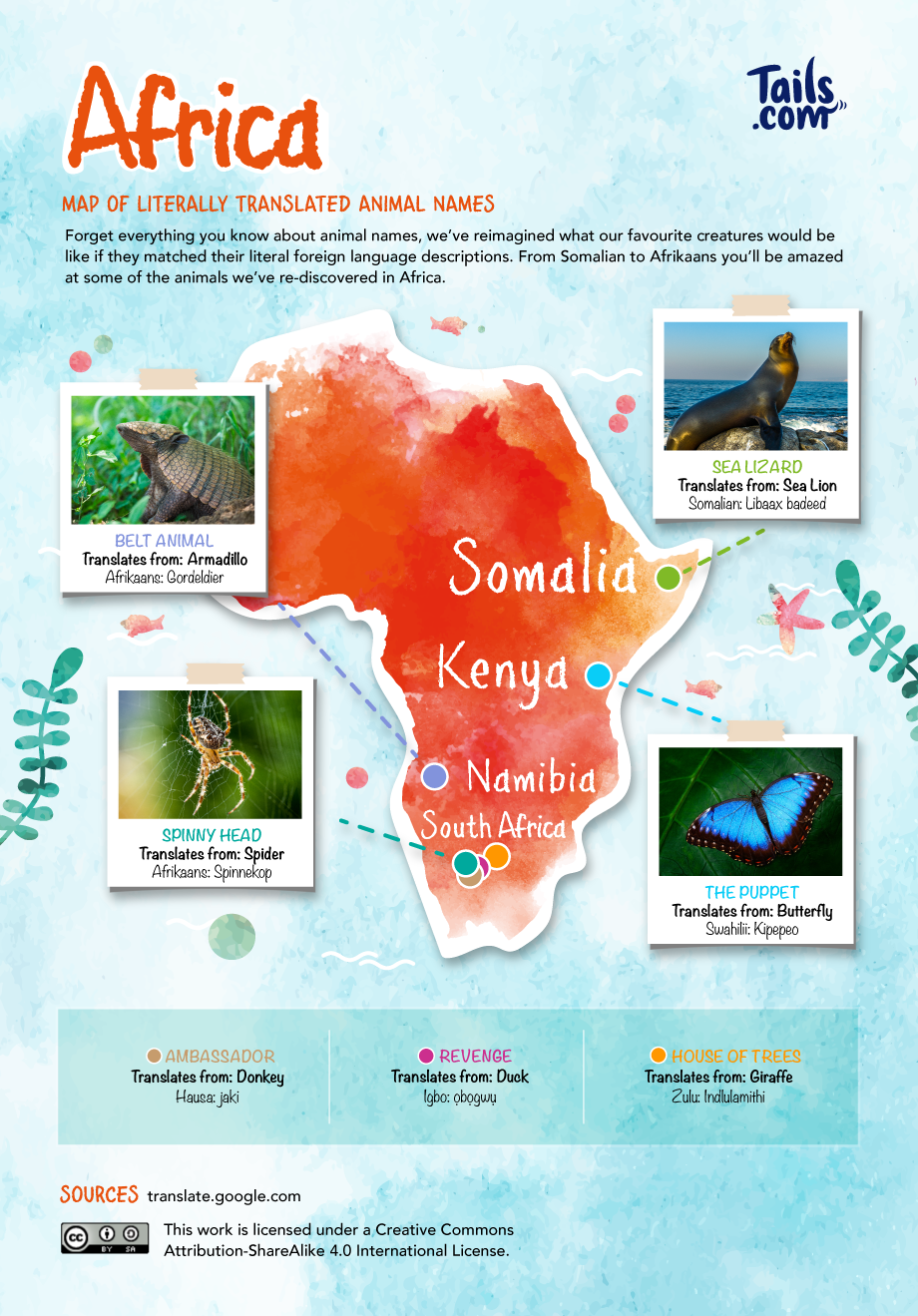
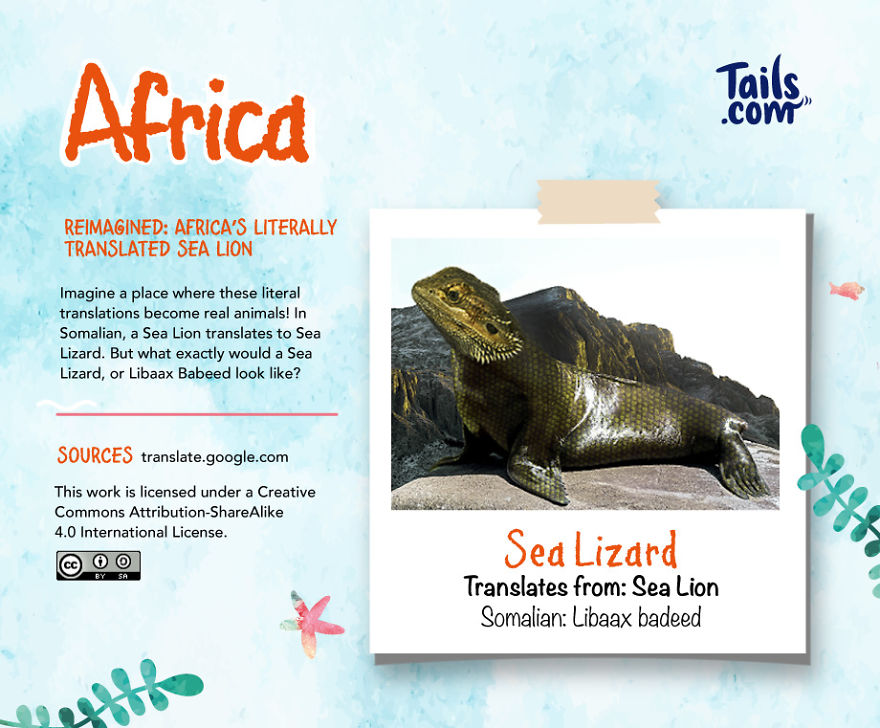
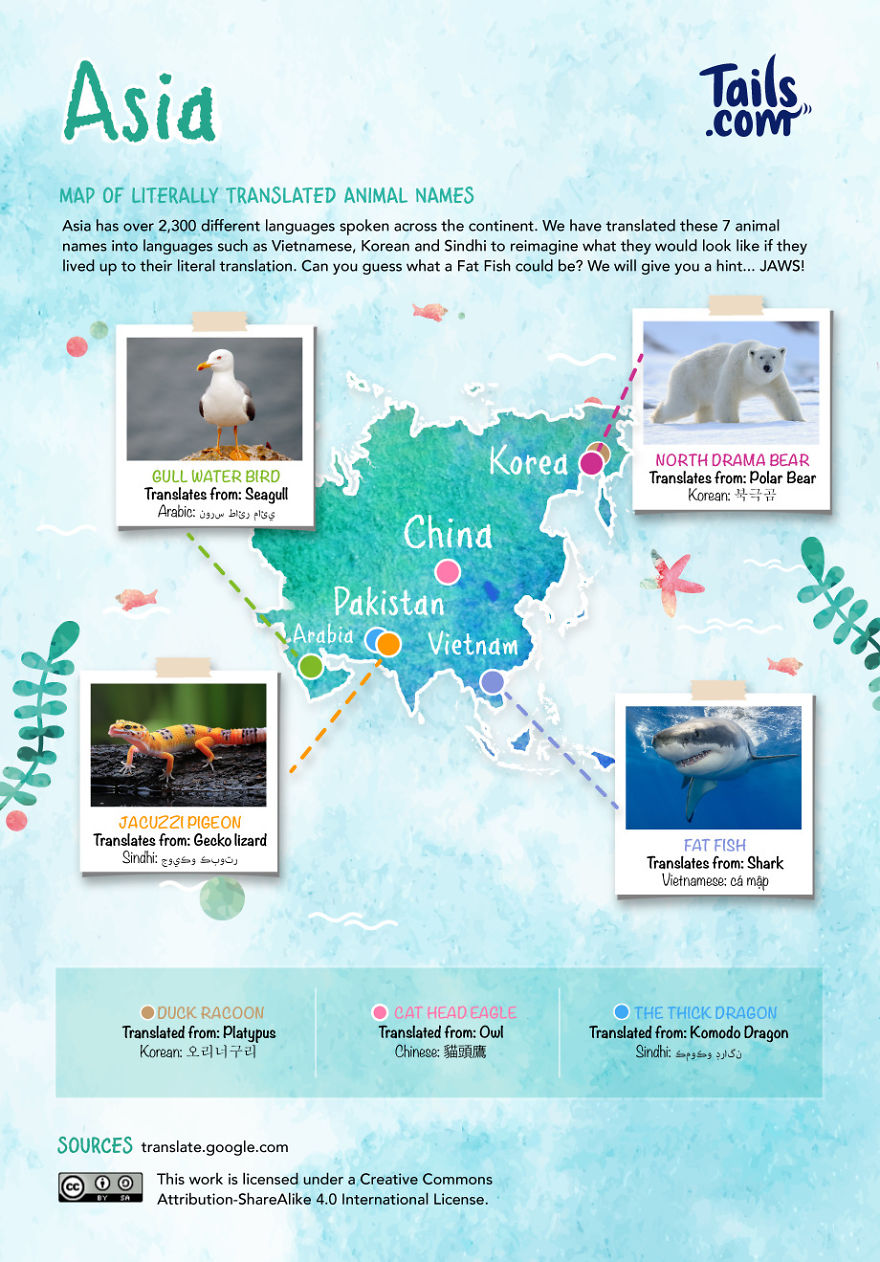
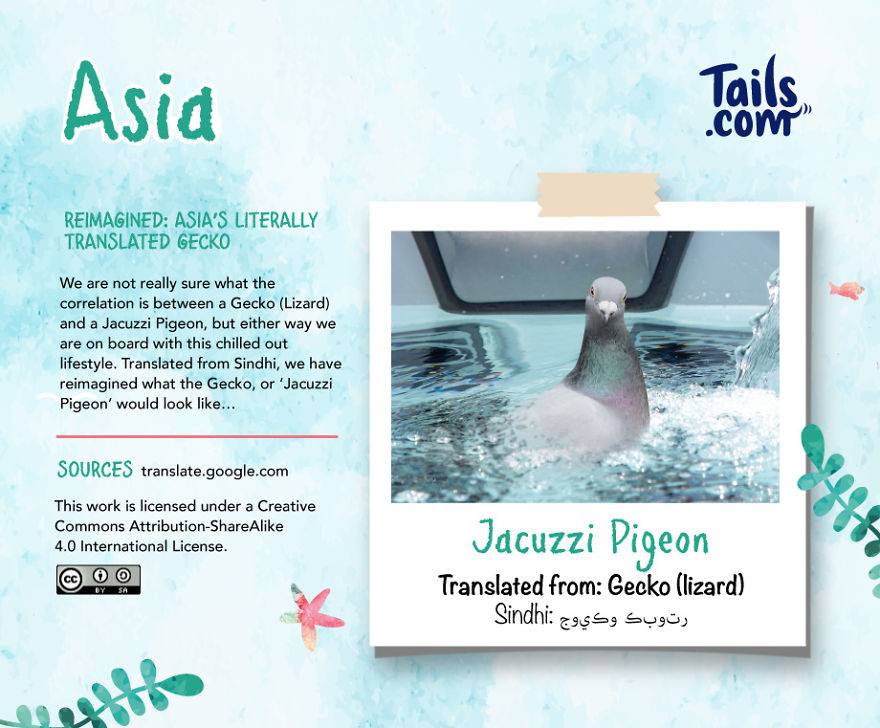
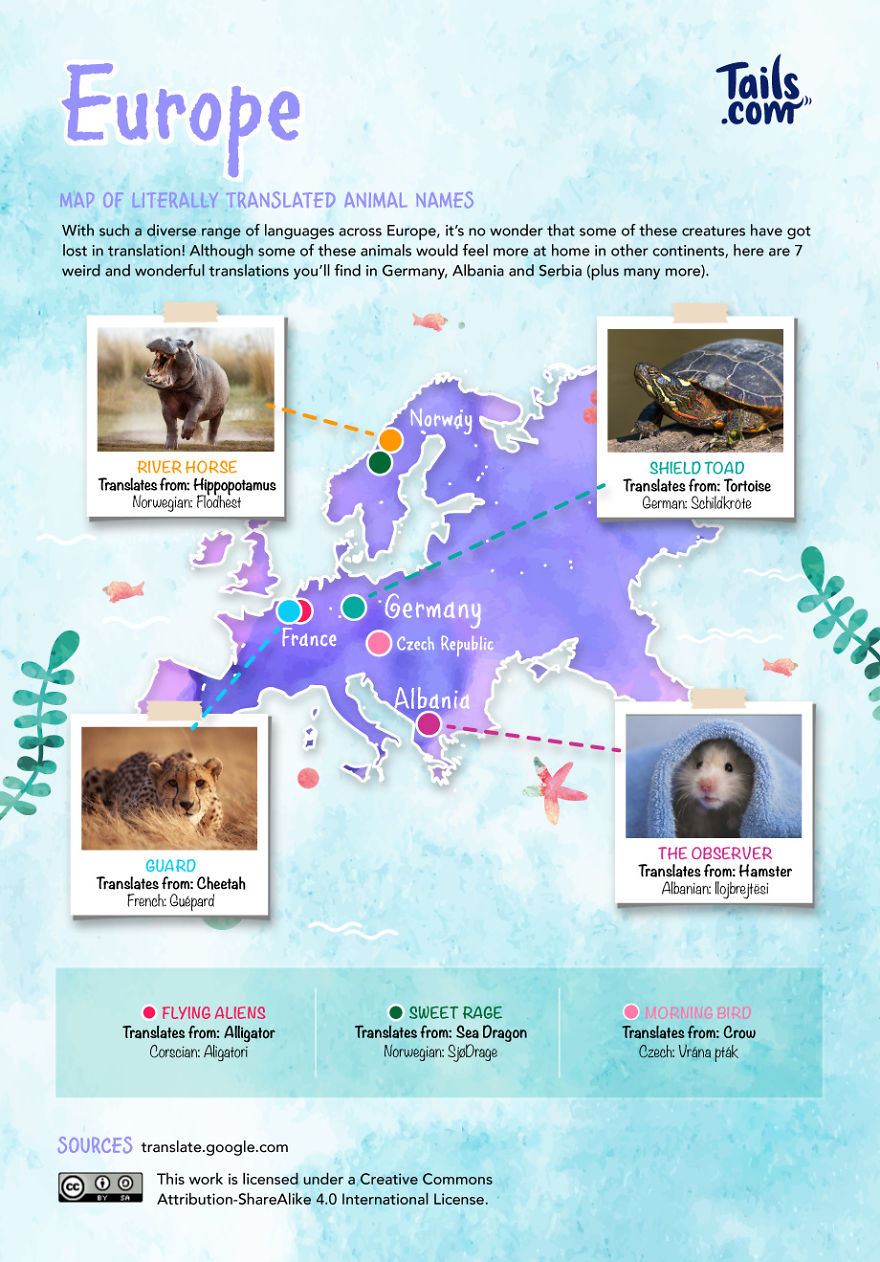
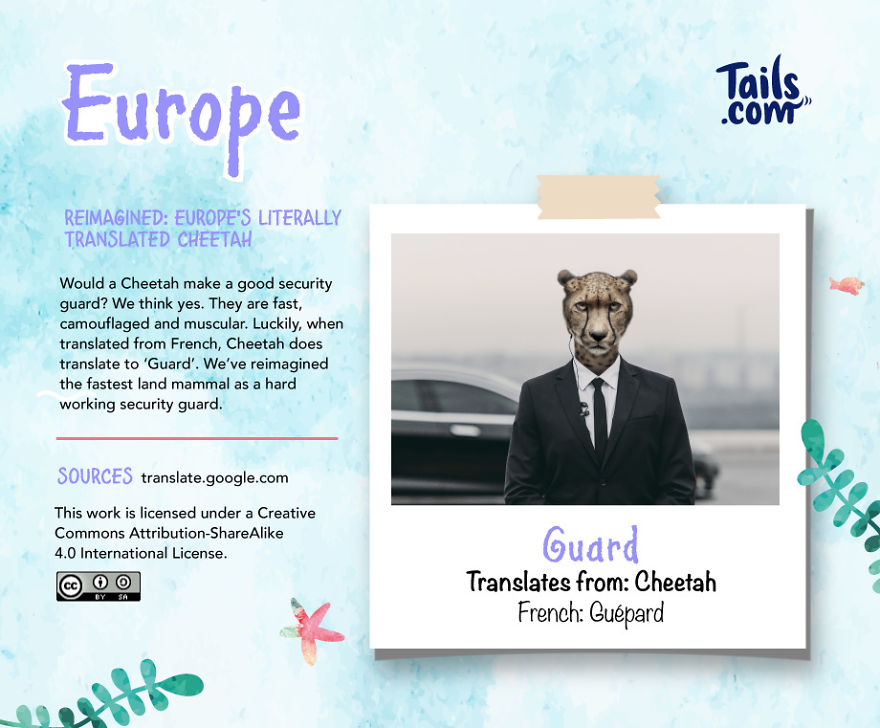


56
31